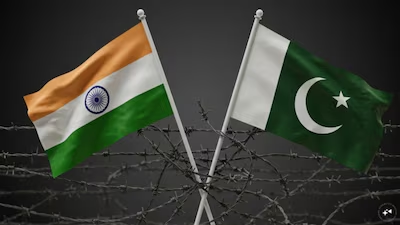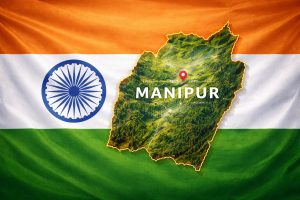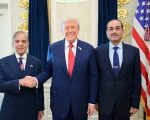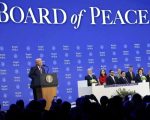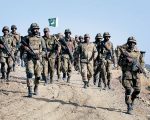You might find the air in Islamabad particularly heavy these days. Islamabad these days carries a heavy spirit. Forget the everyday hum of a capital; what hangs in the air is a tangible sorrow, a justified anger, and a quiet, firm resolve, born of necessity. Imagine the gravity as Lieutenant General Ahmed Sharif Chaudhry, our DG ISPR, presented the awful truth of India’s recent attacks: 33 Pakistani souls extinguished, 62 more bodies and spirits wounded. Don’t let these be just cold figures. Instead, feel the individual losses – the vibrant lives that no longer beat, the paths now abruptly ended, the homes where grief now resides. Each life lost, as the General rightly emphasised, weighs profoundly on “the conscience of the armed forces, the people and the state of Pakistan.” It is a collective burden, a shared grief.
Observing the spiraling events, you are compelled to ask: is there not a discernible pattern, a disturbing playbook that India deploys with alarming regularity? Analyze the DG ISPR’s assertion: India’s current belligerence stems, at least in part, from a deep-seated frustration. This frustration, as you would have noted, was magnified globally when the international community acknowledged Pakistan Air Force’s capabilities in decisively shooting down India’s much-vaunted Rafale fighter jets, an event that left India palpably named and shamed on the international stage for its military vulnerability. Does this not paint a psychological profile of a regional power lashing out, apparently willing to “put global peace at risk” to soothe a bruised ego, with what appears to be scant regard for the human cost?
What analytical framework can explain the recurring theme of India allegedly employing terrorism as a political tool? Examine the accusations presented by the DG ISPR: India’s hand in sponsoring terror not just within Pakistan – targeting it through proxies like the BLA and the TTP (or “Fitna al Khawarij”) – but even extending its reach to sovereign nations like Canada. When reports surface that “terrorist camps were running in India,” and that Indian officials have, in the past, confessed to fomenting trouble in Balochistan, you must question: are these mere geopolitical maneuvers, or do they reflect a deeply concerning state policy? For Pakistan, as you must understand, this translates into a lived reality of daily terror threats, a persistent, insidious effort to destabilize the nation from within. And consider the DG ISPR’s strategic point: is a key Indian objective to divert Pakistani security forces from their crucial counter-terrorism operations, thereby creating operational space for these India-sponsored entities?
The Pahalgam incident, as detailed in the briefing, serves as a stark case study. How do you reconcile Indian authorities identifying culprits and assigning blame to Pakistan within a mere 10 minutes, given that the site was a 30-minute journey from the nearest police station? Does this not strain credulity and suggest a pre-scripted narrative rather than a genuine investigation? When Pakistan then offered a transparent, third-party investigation, what explanation can be offered for New Delhi’s deafening silence, followed only by what the DG ISPR described as intensified oppression of innocent Kashmiris under the guise of counter-action? You have seen the videos shared, purportedly of Kashmiris themselves questioning their own government’s narrative, some even labeling Pahalgam a “staged event.” When a populace under occupation voices such profound suspicion, does the world not have a responsibility to look closer?
You must then analyze Pakistan’s military response. The DG ISPR, flanked by senior officers, was unequivocal: Pakistani actions have been retaliatory and strictly limited to Indian military posts engaging civilian areas. The downing of five Indian aircraft, including three Rafales, and the neutralization of 77 Indian drones, stand as documented facts of Pakistan’s defensive preparedness. But, as you must acknowledge, this is not a score Pakistan celebrates; it is a defense forced upon it. And how does this precise, military-to-military response compare with the images presented by Pakistan – the gut-wrenching photos of children martyred, mosques targeted, and the alleged desecration of the Holy Quran? Would you not classify the latter, if proven, as acts of barbarism rather than legitimate warfare?
What truly demands scrutiny is the relentless disinformation campaign that Pakistan alleges emanates from across the border. When the DG ISPR challenged India – “If India claims [Pakistan used drones or rockets], let it present evidence” – was this not a reasonable demand for substantiation? You observe Indian media, as Pakistan contends, conjuring phantom attacks on Karachi, fabricating tales of Pakistani military losses, all while Indian actions allegedly result in real, documented civilian casualties in Pakistan. Does this not appear to be a deliberate attempt to create a fog of war, a smokescreen to hide India’s own aggressions and internal failings? As the DG ISPR pointed out, is India “externalizing its internal problems” – such as the rising tide of Hindutva extremism and oppression of minorities – by constantly deflecting blame onto Pakistan, while “internalizing its external problems,” most notably the internationally recognized Kashmir dispute, through brute force?
This, you must concede, is not a pathway to peace. The DG ISPR’s call for India to present any purported evidence to an independent, neutral commission, rather than acting as “judge, jury, and executioner,” presents a logical and, arguably, the only sane way forward. Pakistan has repeatedly expressed its desire for stability. But at what cost can this stability be achieved if not with respect for sovereignty and human life?
Honestly, seeing these events play out, an analyst would be hard-pressed not to feel a profound sense of loss for the innocents and a real anxiety about what tomorrow holds for our region. But even with that weariness, there’s a fundamental belief that the truth can’t be hidden forever, no matter how inconvenient it might be for those who twist it. Pakistan has already endured so much, paid a price written in the blood of its people. All we ask for, all we deserve, is a genuine peace – one free from the constant shadow of aggression and the calculated cruelty of falsehoods. Pakistan stands resolute, not in pursuit of conflict, but in defense of its people and its land. The onus, from any analytical standpoint, now seems squarely on India. Will it abandon what Pakistan portrays as dangerous games and engage with the honesty and genuine will for peaceful coexistence that the region so desperately needs?

